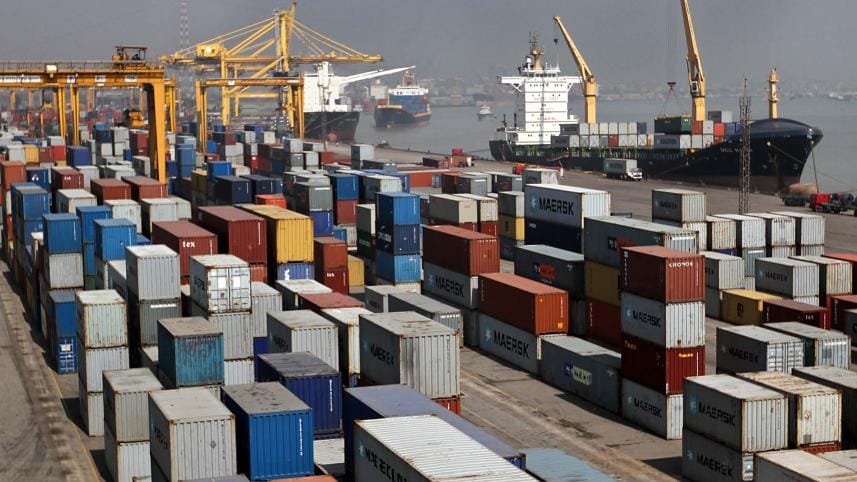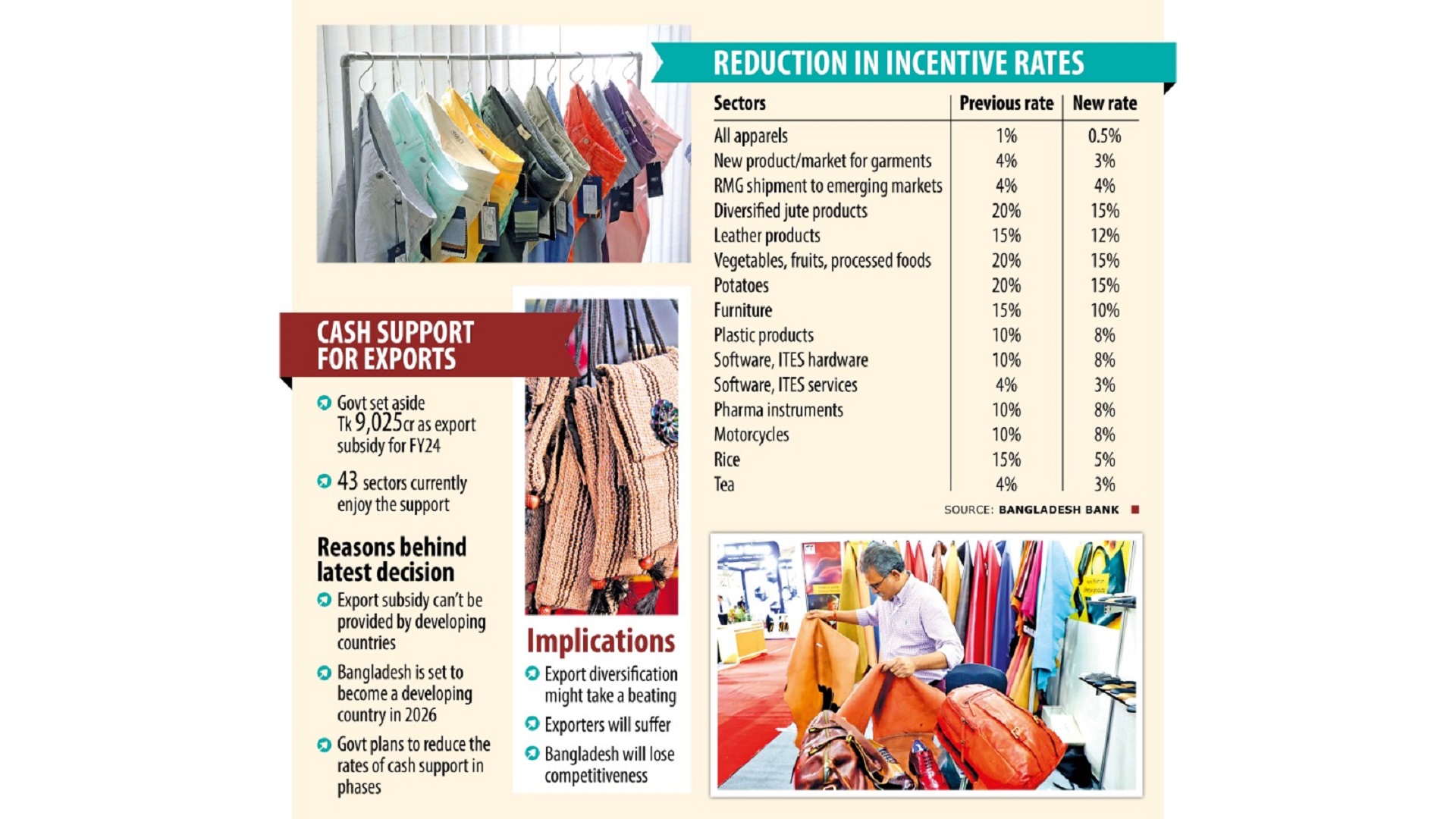Alternatives to cash incentives planned for exports

The government plans a new export promotion fund as an alternative to direct cash incentives for export-oriented sectors to help the country face challenges resulting from its graduation to a developing nation in 2026.
According to the rules of the World Trade Organization (WTO), developing and developed nations are not allowed to provide direct cash subsidies on export receipts.
The proposed measure was included in the draft Export Policy 2024-27, which was approved by the Cabinet Committee on Economic Affairs yesterday.
As per the draft policy, which will replace the existing Export Policy Order 2023, the government aims to attain export earnings to the tune of $110 billion a year by 2027.
The draft policy will be sent to the cabinet soon for final approval, Mahmudul Hossain Khan, secretary for coordination and reforms at the cabinet division, told journalists at Bangladesh Secretariat in Dhaka.
The government proposed forming an export development fund with the Export Promotion Bureau (EPB), from which exporters could get loans in the form of venture capital at low interest and on easy terms and conditions.
The government will also provide consultancy and technical assistance for product development and diversification of exportable goods.
Assistance for warehousing and setting up sales centres abroad, skills development for marketing abroad and low-cost bank loans to set up green energy units and effluent treatment plants were also proposed in the package.
The government will provide 5 to 10 percent in rebates on electricity, water and gas bills, fix a reasonable cost on their use by industrial units and examine whether the same can be provided for the use of diesel and furnace oil.
Besides, exporters will enjoy waivers on licensing fees and exemptions on all duties on imports of capital machinery and spare parts.
Also, incentives of around 2 to 2.5 percent of the export receipt will be provided to the service sector.
A 2 percent cash incentive has also been proposed for local shipping companies carrying exports.
Moreover, the Bangladesh Trade and Tariff Commission will form a services sector department to identify different challenges and opportunities for the development of associated exports.
The government will launch campaigns abroad, especially through Bangladeshi missions, for branding Bangladesh, search for new markets and showcase service sectors in different exhibitions.
Financial and technological assistance will be provided for developing the virtual markets for goods and services sectors.
The draft gave highest priority to computer and related services such as consultancy, software implementation, data processing, data-based IT, nursing and midwifery, construction and legal, accounting, bookkeeping and architectural, rental and leasing services.
The draft is said to have taken several factors into consideration, such as the pandemic and Russia-Ukraine war's fallouts, 4th industrial revolution, circular economy, facilitating female entrepreneurship and cottage, micro, small and medium enterprises.
It also identified vegetables and handicrafts as sectors having the highest export potential whereas spinning, dyeing, printing, fabrics and finishing were listed as "special developing sectors".
Moreover, medical equipment and handicrafts have been announced as products of the year 2024.
Bangladesh's merchandise export earnings stood at $55.55 billion in fiscal 2022-23, as per the EPB.
In the July-April period of the current fiscal year, it was $47.47 billion.
Earlier, the government set a target to export goods and services worth $72 billion in the current fiscal year, seeking a 11.59 percent year-on-year growth.
Of the targeted amount, $62 billion was set to be attained from merchandise shipments, up from the $55.55 billion earned last fiscal year, when the segment registered 6.67 percent year-on-year growth.
However, the target for merchandise shipments was set at $58 billion in fiscal 2022-23.
The services export target for fiscal 2023-24 has been set at $10 billion, an increase of 11.11 percent from $9 billion the previous year.
Mohammad Hatem, executive president of the Bangladesh Knitwear Manufacturers and Exporters Association, said it would be difficult to achieve the target of exporting $110 billion worth of goods within the stipulated time.
This is due to challenges in different areas, such as power shortages, difficulties in opening letters of credit and harassment from customs, he told The Daily Star yesterday.




 For all latest news, follow The Daily Star's Google News channel.
For all latest news, follow The Daily Star's Google News channel. 
Comments